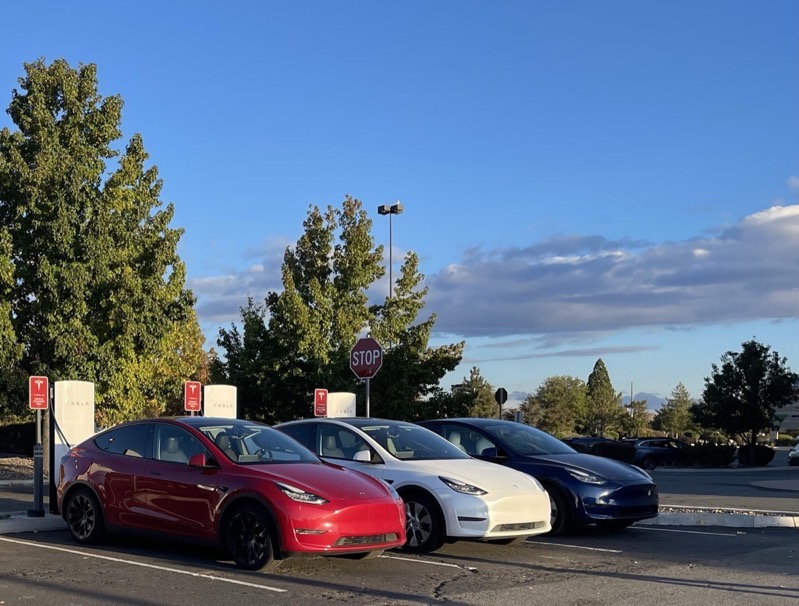
White House Allocates $623 Million for EV Charging Expansion
The Biden-Harris Administration has announced a significant investment of $623 million to expand the electric vehicle (EV) charging network across the United States.
This initiative is part of a broader effort to create American jobs and facilitate the transition to electric vehicles for more drivers. The administration aims to establish a convenient, affordable, and reliable network of EV chargers, targeting at least 500,000 publicly available chargers by 2030. This move aligns with the administration’s commitment to ensuring EVs are manufactured domestically with American labor.
Under President Biden’s leadership, EV sales have surged, quadrupling in number, touted the White House in a press release. Tesla leads EV sales in the U.S. by a far margin over traditional automakers.
Publicly available charging ports have increased by nearly 70%, with over 4 million EVs now on American roads. Private sector investments in the EV and battery supply chain have exceeded $155 billion during the Biden-Harris Administration.
The grants announced are part of the Bipartisan Infrastructure Law’s $2.5 billion Charging and Fueling Infrastructure (CFI) Discretionary Grant Program. This program will fund 47 EV charging and alternative-fueling infrastructure projects in 22 states and Puerto Rico, including approximately 7,500 EV charging ports.
The CFI program complements the $5 billion National Electric Vehicle Infrastructure (NEVI) formula program, which focuses on building a network of high-speed EV chargers along national highways.
U.S. Transportation Secretary Pete Buttigieg stated, “America led the arrival of the automotive era, and now we have a chance to lead the world in the EV revolution—securing jobs, savings, and benefits for Americans in the process.”
The Federal Highway Administration is allocating $311 million to 36 “community” projects, including two Indian Tribes in Alaska and Arizona. These projects focus on EV charging and hydrogen fueling infrastructure in various settings, including schools, parks, and multi-family housing.
An additional $312 million will support 11 “corridor” projects along Alternative Fuel Corridors, aiming to fill gaps in the national charging and alternative-fueling network.
The CFI Program also advances President Biden’s Justice40 Initiative, ensuring that 40% of federal investment benefits flow to disadvantaged communities. Over 70% of the CFI funding will support project sites in these communities.
“Every community across the nation deserves access to convenient and reliable clean transportation,” said U.S. Secretary of Energy Jennifer M. Granholm.
The funding will also support various regional projects, including $10 million to the New Jersey Department of Environmental Protection for EV charging stations in disadvantaged communities and rural areas, and $70 million to the North Central Texas Council of Governments for hydrogen fueling stations.
To ensure a consistent charging experience, EV chargers constructed with CFI funds must adhere to minimum standards established for NEVI-funded chargers, including Made in America requirements and strong workforce standards.
The Federal Highway Administration is collaborating with the Joint Office of Energy and Transportation to provide technical assistance for the national EV charger network. Given how the majority of automakers now support Tesla’s North American Charging Standard (NACS), it’s likely a shoo-in for the latter to become the standard when grant recipients install their EV chargers.
